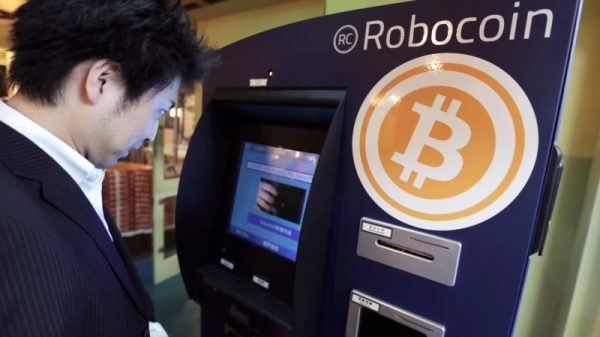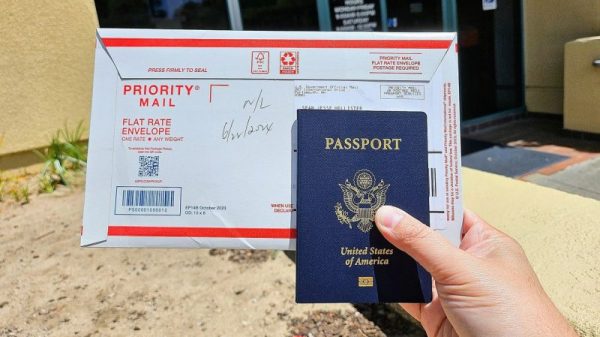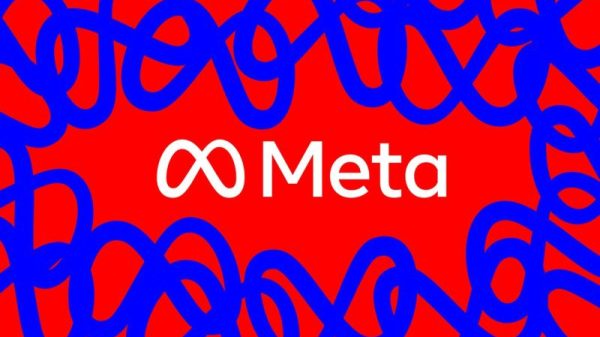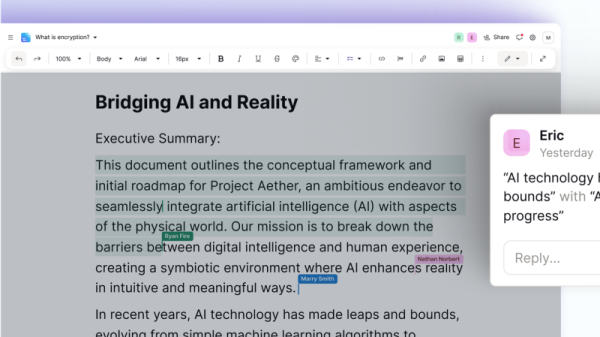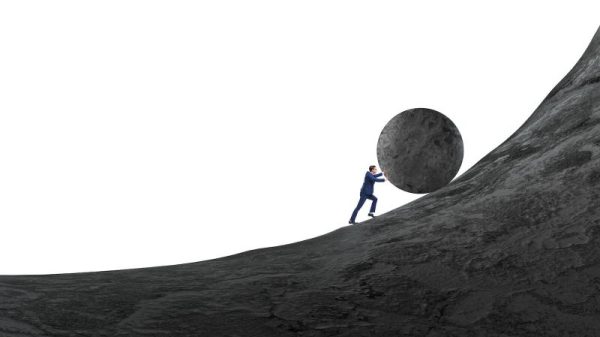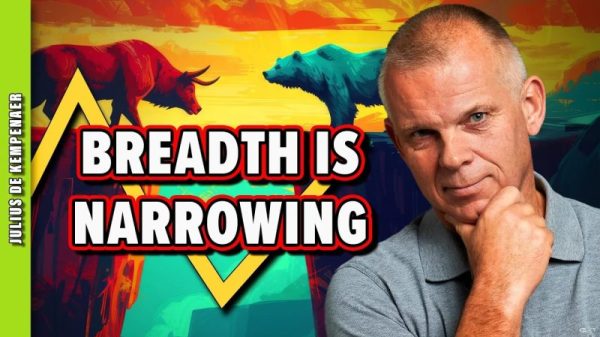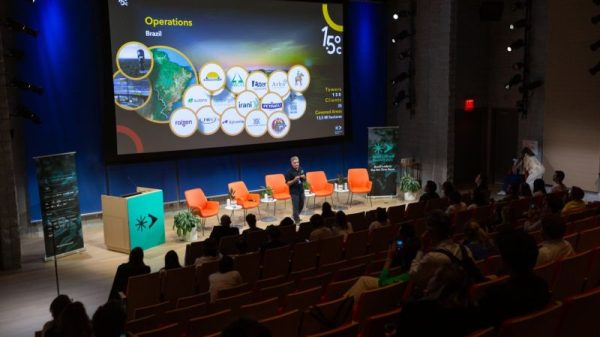On Jan. 6, 2021, Alan Hostetter and Russell Taylor were shoulder to shoulder in the battle they had predicted would come if the 2020 presidential election results unseating President Donald Trump were not discarded.
Under a photograph of the men taken during the riot and posted on Instagram, Hostetter wrote: “We are just getting started.” Hostetter had driven to D.C. while Taylor flew, so they could carry weapons with them to the Capitol, including bear spray, hatchets, knives and stun batons.
But last week, the two squared off in a federal courtroom, with Taylor admitting from the witness box that what they had cast as a patriotic cause was a criminal conspiracy to keep Congress from doing its work. Hostetter, acting as his own attorney, was accusing his former friend of taking part in a much broader conspiracy orchestrated by the federal government.
A police chief turned yoga instructor who helped organize a “brigade” of Californians on Jan. 6, Hostetter was convicted Thursday of four felonies — conspiring to obstruct and obstructing an official proceeding, and trespassing and engaging in disorderly conduct with a dangerous weapon.
“No reasonable citizen of this country, much less one with two decades of experience in law enforcement, could have believed it was lawful to use mob violence to impede a joint session of Congress,” U.S. District Judge Royce C. Lamberth said in court. “Belief that your actions are for a greater good doesn’t negate consciousness of wrongdoing.”
Hostetter is one of several Jan. 6 defendants to represent himself, using the public platform to insist without evidence that the 2020 presidential election was stolen and that the Capitol riot was a distraction instigated by federal agents. Both false claims have been amplified by Trump himself in recent months. Experts say the convictions of Hostetter and other rioters are probably deterring political violence even as most Republicans continue to support Trump and his falsehoods related to the justice system.
“Our country has been overthrown,” Hostetter said in his opening statement. “This whole thing is corrupt.” He said he surmised the Capitol was thinly guarded because those in power wanted police to be overrun, giving Republican lawmakers an excuse to certify the election results. “It hasn’t been proven in the past two years, but I believe that day is coming,” he added in closing.
Several members of Congress who had opposed certification of the election results on Jan. 6 withdrew those objections when they reconvened after the riot. But the Republican group never had enough votes to prevent Joe Biden from being named the winner of the presidential election, and multiple subsequent audits found no significant fraud.
Lamberth interrupted Hostetter’s closing argument to say he had watched video of a hearing in Pennsylvania in late 2020 at which Trump attorney Rudy Giuliani failed to present any evidence of election fraud. “I was so dumbfounded that the lawyer representing the president would make such a poor presentation,” Lamberth said, adding he was also “dumbfounded because I had known” Giuliani “in my previous life.” Lamberth, a Ronald Reagan appointee, was an assistant U.S. attorney when Giuliani was in Justice Department leadership.
“Citizens can make up their minds on politics or other bases,” he said. “Courts have got to have evidence.”
He said Hostetter had likewise provided no evidence for his claim that the riot was “staged.” Hostetter had asked multiple law enforcement witnesses why there was not higher fencing or more police officers around the Capitol.
Testifying before the House Judiciary Committee on Wednesday, FBI Director Christopher A. Wray called assertions that undercover agents somehow orchestrated or encouraged violence against police on Jan. 6 “ludicrous” and “a disservice to our brave, hard-working, dedicated men and women.” He added that he did not believe there were any undercover agents in the crowd that day. There have been multiple audits of law enforcement failures on Jan. 6, finding that federal agencies ignored warning signs of violence and failed to share intelligence with U.S. Capitol Police, who were not prepared to handle the crowd.
“There is no ‘the police didn’t stop me in time’ defense,” Assistant U.S. Attorney Anthony Mariano said in his closing argument. “If Alan Hostetter wants to know what could have been done to prevent Jan. 6, he could start by looking in the mirror.”
Hostetter became active in Southern California right-wing politics in 2020 through opposition to coronavirus mitigation measures and Black Lives Matter demonstrations; he founded a group called the American Phoenix Project that went from opposing pandemic rules to promoting Trump. That’s how he met Taylor and several other Californians who came to Washington on Jan. 6. He said in court he now thinks they were all government agents who made him a “special project” because he had “shown some leadership ability.” He also alleged that members of the Three Percenter militia movement and Proud Boys leader Henry “Enrique” Tarrio tried to infiltrate the American Phoenix Project on behalf of the government.
But he acknowledged when testifying on his own behalf that on Jan. 6 and in the days after, he repeatedly took credit for what happened on behalf of his fellow Trump supporters. “Patriots broke into Capitol Hill. I was one of them,” he said in one message. “Thousands stormed that cesspool of corruption.”
Prosecutors agreed Hostetter was a leader — someone who was organizing far-right activists from California to go to Washington on Jan. 6 even before Trump tweeted that there would be a “wild” protest.
“No one had to tell Alan Hostetter what was happening in Congress that day,” Mariano said in his opening statement. He played video of Hostetter saying in November that “tyrants and traitors need to be executed as an example.” The night of Trump’s tweet, Hostetter told a group in California to prepare to surround the Capitol and make lawmakers fear being dragged out by their hair and hung from lampposts. And on Jan. 5, outside the Supreme Court, Hostetter told a crowd, “I will see you all tomorrow at the front lines. We are taking our country back.”
Counter-extremism researcher Jared Holt said Hostetter’s false beliefs about both the election and Jan. 6 are widely shared among Trump supporters, but that prosecutions have “served as a strong deterrent” against further violence. “Since 2020, Trump has proven to be incapable of mobilizing large numbers of his supporters toward disruptive real-world actions,” Holt said, in part because of the kind of paranoia about federal law enforcement Hostetter displayed at trial. That said, Trump “still calls the tune in today’s Republican Party,” Holt said, a melody “made up of conspiracy theories, cynicism and resentment, which can have powerful impacts on individuals.”
Mark Pitcavage, an Anti-Defamation League extremism researcher who has tracked far-right militant groups for decades, added, “You don’t need very many people motivated to commit violence to cause a lot of problems.”
Amid the baseless speculation, Hostetter offered a more straightforward defense: that he engaged in “hyperbole” and “puffery” before Jan. 6, never expected to get so close to the building, and was “caught up in the energy” of the crowd. In his closing, he defended his “revolutionary fervor” with a quote he attributed to Thomas Jefferson: “When governments fear the people, there is liberty. When the people fear the government, there is tyranny.” There is no evidence Jefferson ever said that.
Devlin Barrett and Paul Kane contributed to this report.
On Jan. 6, 2021, Alan Hostetter and Russell Taylor were shoulder to shoulder in the battle they had predicted would come if the 2020 presidential election results unseating President Donald Trump were not discarded.
Under a photograph of the men taken during the riot and posted on Instagram, Hostetter wrote: “We are just getting started.” Hostetter had driven to D.C. while Taylor flew, so they could carry weapons with them to the Capitol, including bear spray, hatchets, knives and stun batons.
But last week, the two squared off in a federal courtroom, with Taylor admitting from the witness box that what they had cast as a patriotic cause was a criminal conspiracy to keep Congress from doing its work. Hostetter, acting as his own attorney, was accusing his former friend of taking part in a much broader conspiracy orchestrated by the federal government.
A police chief turned yoga instructor who helped organize a “brigade” of Californians on Jan. 6, Hostetter was convicted Thursday of four felonies — conspiring to obstruct and obstructing an official proceeding, and trespassing and engaging in disorderly conduct with a dangerous weapon.
“No reasonable citizen of this country, much less one with two decades of experience in law enforcement, could have believed it was lawful to use mob violence to impede a joint session of Congress,” U.S. District Judge Royce C. Lamberth said in court. “Belief that your actions are for a greater good doesn’t negate consciousness of wrongdoing.”
Hostetter is one of several Jan. 6 defendants to represent himself, using the public platform to insist without evidence that the 2020 presidential election was stolen and that the Capitol riot was a distraction instigated by federal agents. Both false claims have been amplified by Trump himself in recent months. Experts say the convictions of Hostetter and other rioters are probably deterring political violence even as most Republicans continue to support Trump and his falsehoods related to the justice system.
“Our country has been overthrown,” Hostetter said in his opening statement. “This whole thing is corrupt.” He said he surmised the Capitol was thinly guarded because those in power wanted police to be overrun, giving Republican lawmakers an excuse to certify the election results. “It hasn’t been proven in the past two years, but I believe that day is coming,” he added in closing.
Several members of Congress who had opposed certification of the election results on Jan. 6 withdrew those objections when they reconvened after the riot. But the Republican group never had enough votes to prevent Joe Biden from being named the winner of the presidential election, and multiple subsequent audits found no significant fraud.
Lamberth interrupted Hostetter’s closing argument to say he had watched video of a hearing in Pennsylvania in late 2020 at which Trump attorney Rudy Giuliani failed to present any evidence of election fraud. “I was so dumbfounded that the lawyer representing the president would make such a poor presentation,” Lamberth said, adding he was also “dumbfounded because I had known” Giuliani “in my previous life.” Lamberth, a Ronald Reagan appointee, was an assistant U.S. attorney when Giuliani was in Justice Department leadership.
“Citizens can make up their minds on politics or other bases,” he said. “Courts have got to have evidence.”
He said Hostetter had likewise provided no evidence for his claim that the riot was “staged.” Hostetter had asked multiple law enforcement witnesses why there was not higher fencing or more police officers around the Capitol.
Testifying before the House Judiciary Committee on Wednesday, FBI Director Christopher A. Wray called assertions that undercover agents somehow orchestrated or encouraged violence against police on Jan. 6 “ludicrous” and “a disservice to our brave, hard-working, dedicated men and women.” He added that he did not believe there were any undercover agents in the crowd that day. There have been multiple audits of law enforcement failures on Jan. 6, finding that federal agencies ignored warning signs of violence and failed to share intelligence with U.S. Capitol Police, who were not prepared to handle the crowd.
“There is no ‘the police didn’t stop me in time’ defense,” Assistant U.S. Attorney Anthony Mariano said in his closing argument. “If Alan Hostetter wants to know what could have been done to prevent Jan. 6, he could start by looking in the mirror.”
Hostetter became active in Southern California right-wing politics in 2020 through opposition to coronavirus mitigation measures and Black Lives Matter demonstrations; he founded a group called the American Phoenix Project that went from opposing pandemic rules to promoting Trump. That’s how he met Taylor and several other Californians who came to Washington on Jan. 6. He said in court he now thinks they were all government agents who made him a “special project” because he had “shown some leadership ability.” He also alleged that members of the Three Percenter militia movement and Proud Boys leader Henry “Enrique” Tarrio tried to infiltrate the American Phoenix Project on behalf of the government.
But he acknowledged when testifying on his own behalf that on Jan. 6 and in the days after, he repeatedly took credit for what happened on behalf of his fellow Trump supporters. “Patriots broke into Capitol Hill. I was one of them,” he said in one message. “Thousands stormed that cesspool of corruption.”
Prosecutors agreed Hostetter was a leader — someone who was organizing far-right activists from California to go to Washington on Jan. 6 even before Trump tweeted that there would be a “wild” protest.
“No one had to tell Alan Hostetter what was happening in Congress that day,” Mariano said in his opening statement. He played video of Hostetter saying in November that “tyrants and traitors need to be executed as an example.” The night of Trump’s tweet, Hostetter told a group in California to prepare to surround the Capitol and make lawmakers fear being dragged out by their hair and hung from lampposts. And on Jan. 5, outside the Supreme Court, Hostetter told a crowd, “I will see you all tomorrow at the front lines. We are taking our country back.”
Counter-extremism researcher Jared Holt said Hostetter’s false beliefs about both the election and Jan. 6 are widely shared among Trump supporters, but that prosecutions have “served as a strong deterrent” against further violence. “Since 2020, Trump has proven to be incapable of mobilizing large numbers of his supporters toward disruptive real-world actions,” Holt said, in part because of the kind of paranoia about federal law enforcement Hostetter displayed at trial. That said, Trump “still calls the tune in today’s Republican Party,” Holt said, a melody “made up of conspiracy theories, cynicism and resentment, which can have powerful impacts on individuals.”
Mark Pitcavage, an Anti-Defamation League extremism researcher who has tracked far-right militant groups for decades, added, “You don’t need very many people motivated to commit violence to cause a lot of problems.”
Amid the baseless speculation, Hostetter offered a more straightforward defense: that he engaged in “hyperbole” and “puffery” before Jan. 6, never expected to get so close to the building, and was “caught up in the energy” of the crowd. In his closing, he defended his “revolutionary fervor” with a quote he attributed to Thomas Jefferson: “When governments fear the people, there is liberty. When the people fear the government, there is tyranny.” There is no evidence Jefferson ever said that.
Devlin Barrett and Paul Kane contributed to this report.




